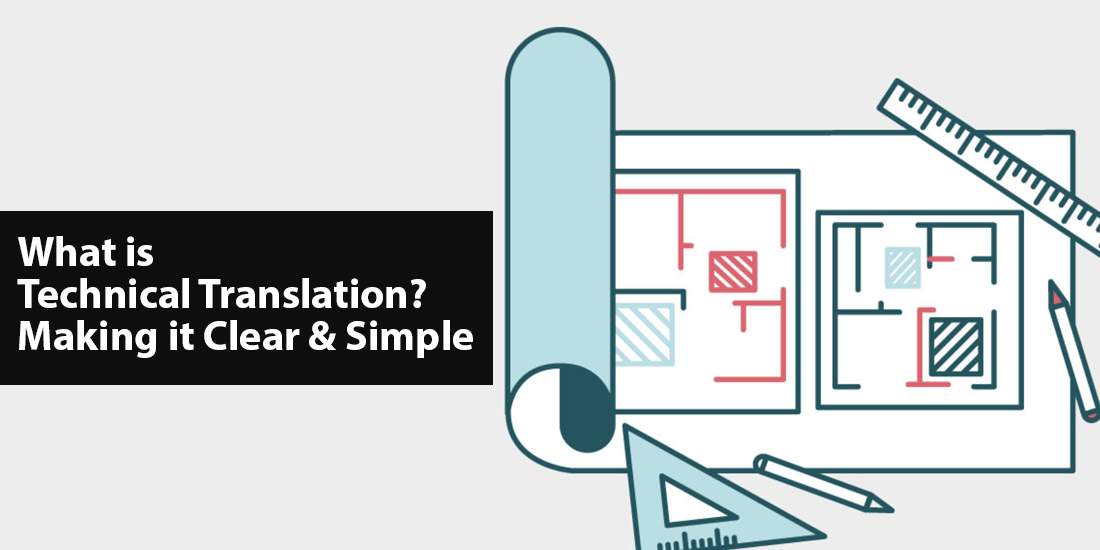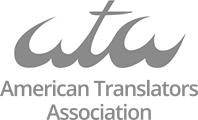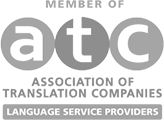What Is Technical Translation?
Technical translation is a type of specialized translation that involves the translation of documents produced by professionals with a high level of expertise in their given fields.
These translations cover many kinds of specialized industries and require an expert level of subject knowledge and mastery of the relevant jargon, terminology, and writing conventions.
You need to also be an expert in the culture of the targeted language, so you can communicate the translated text in a culturally appropriate and natural way.
What Are Some Common Technical Document Translation Material
Most companies will need technical translation services when they purchase from a foreign supplier and have mandatory requirements to document all their internal processes for compliance. Relying on professional translation services is crucial every time your company is doing business with international partners to ensure you understand the documentation correctly.
Your business must be able to provide complete documentation for your customer’s local language as well if you sell products and services outside of your country. This can improve customer relationships and trust, making them more likely to purchase from you.
Technical translations can be done to many types of texts, including specialized websites to user manuals. Here are the most common translated texts:
Patent Translation
Patents are a form of intellectual property that gives the owner the legal right to exclude other individuals, businesses, and industries from making, selling, using and importing an invention for a limited period of years.
For the translations of patents, the linguist must be a Subject Matter Expert (Medical, Chemical, Mechanical, and Pharmaceutical). A clear understanding of the technical details and future applications of the product described without disclosing all the information is required.
User Manuals Translations
User manuals are a technical document that is designed to help non-technical people find and solve problems without expert assistance. Used to help deal with customer frustration by giving them a solution that can identify, understand, and decipher frequent technical problems by themselves.
Similarly, with Patents, you need to be an expert on the specific subject matter and have some sort of industry experience. In addition, the linguist needs to know the culture of the industry, so they can communicate in the right style of writing that can be easily understood.
Software Strings
Software strings are subjected to character restrictions within the user interface as certain languages have a system requirement for types of compound words and extended characters. While translating the user interface may be simple, they must also know how to handle strings that are being read and interpreted by the program.
This means the linguist must have an understanding of the terminology and expectations from the software strings in a foreign language. Having a strong understanding of software programming, app development, and e-learning systems is crucial for translating software strings.
Health and Safety Documents
All businesses need some sort of health and safety documentation to control health risks and teach their employees on safe working procedures. Required by law, having the documents translated to your employee’s native tongue is crucial in ensuring all employees stay safe.
As there is a lot of specific terminology in regards to health and safety, translating these terms incorrectly can cause harm to your employees. A skillful linguist is required when a broad understanding of the health and safety language. They must be able to translate the content in an easy to understand the way that every individual could understand.
Other Forms of Documents Used for Technical Translations
In addition to the previous content, there are many different documents that use technical translation services. Here are some more:
- Training materials
- User and operating instructions
- Website translation
- Articles/journals
- Technical reports
- Textbooks
- Marketing communications
- Material safety data sheets
- Brochures
- Product labeling, packaging, and catalogs
- Product specifications
- Regulatory documentation
- Feasibility studies
- Internal communications
- Manufacturing and engineering articles
- Service, maintenance and policy manuals
- Site surveys
- Software strings
- Patents and patent applications
The Technical Translation Process
Here are key terms that are used frequently throughout the technical translation process.
Translation Glossary
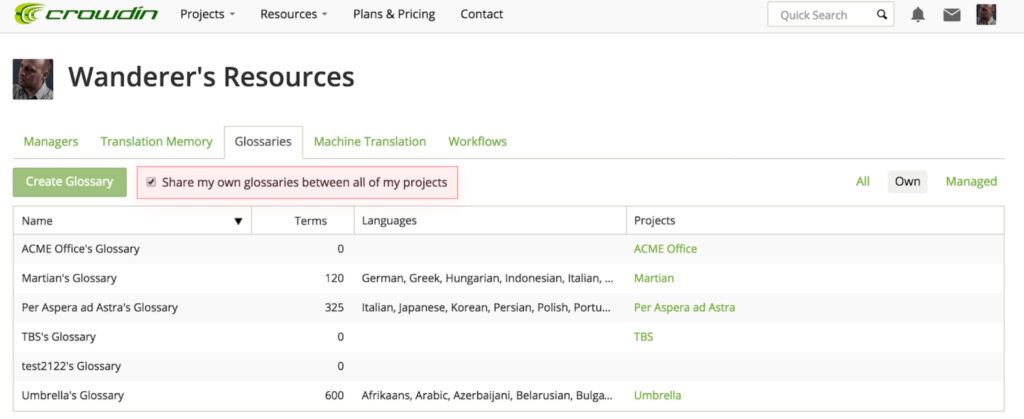
Technical Translation glossary resource using Crowdin
Consistency throughout every document is crucial. As 15% of all globalization translation project costs arise from rework due to inconsistency in the terminology, that’s why having a translation glossary is crucial.
A translation glossary is an index of specific key terms that shows an approved translation in all target languages that are used by a company and clients. They are useful to help promote consistency and clarity in highly technical industries.
These glossaries can be written on a spreadsheet or a sophisticated tool that manages all their translations and terms, depending on the company’s size.
Each glossary contains the key terminologies with both the source and targeted language. They may also contain additional metadata, including definition, part of speech, context, and approval/review date.
A glossary enforces consistency, helping eliminate uncertainty throughout the translation process, resulting in a shorter time needed to translate a document and a reduced overall cost of translation over time.
Translation Memory
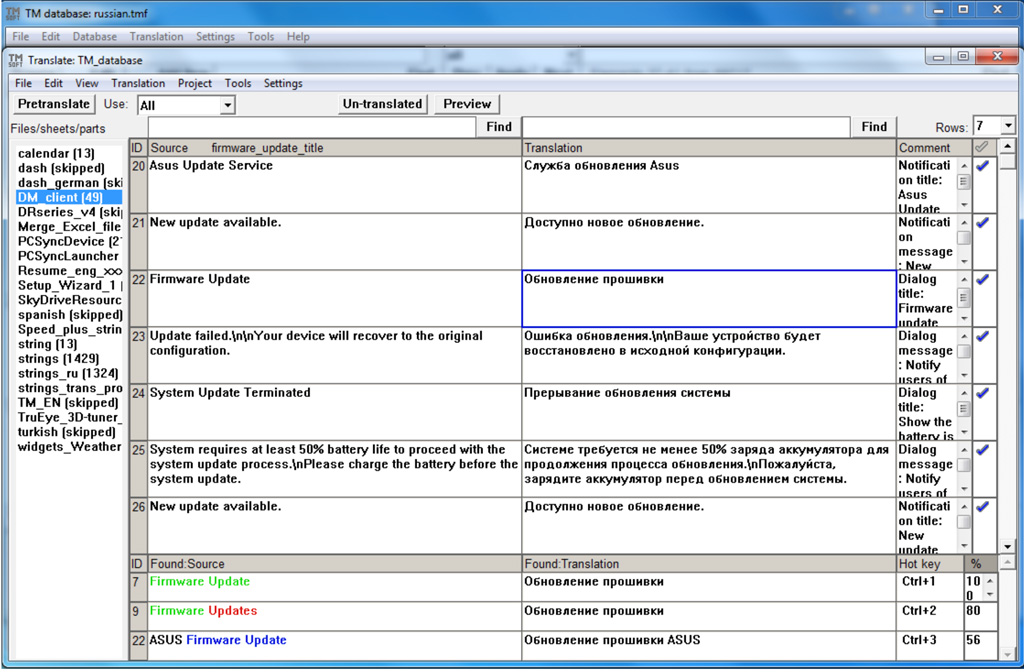
Translation Memory for technical translation process
Translation memory is a database that stores paragraphs, sentences, and parts of texts that have been previously translated. It splits texts into small segments and stores their translations in a database. When a segment is found in the text, translators can reuse the previous translation, reducing the time needed to search for reference materials.
Although not all segments shown are exactly the same. By using computer-assisted translation tools, they can identify similar fragments of texts. Similarities below 65% are called fuzzy matches, usually not as useful and may need to be manually translated.
By using translation memory and computer-assisted translation tools, translators can keep up with their workload, and take up more jobs to earn more money in less time.
If it’s your first time working with a company for your translation service, discussing putting a glossary of texts and terminology will be beneficial for any future document translation projects.
How To Prepare Your Company For Technical Translation
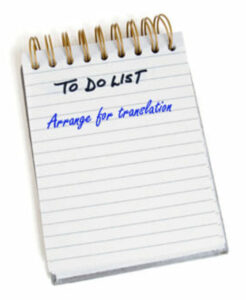
How to prepare for Technical translation with a todo list of items
Providing a little preparation for technical translators can help reduce the time needed for your documents to be translated. The more technical and specific information you provide, the more effective the translation of the document will be.
Here are some key areas that you should consider before working with a technical translator.
- Do your research on translation agencies. Make sure he has the correct credentials, expertise, and experience to translate your document efficiently and clearly.
- Be specific about who your target audience and markets are. This allows the agency to identify cultural or linguistic nuances and jargon in advance.
- Make sure all your documents are finalized and completed. Having any last-minute edits can cause delays and confusion once the translation process has begun.
- Ask your translator to create a translation glossary that covers all technical and specific terminology. This allows you to get a head start for future translations and streamline the whole process.
- Ask the translation services on what file formats they support.
- Understand throughout the translation processes, the writing will increase or decrease. Make sure to prepare for design changes and allow for additional white space for your documents.
Make sure you get these little things right, and you’ll get a faster, clearer, and cheaper translation service from your service agency.
Why Choose TranslateRight For Technical Document Translation Services
Translated Right is a certified professional technical translation agency that provides technical translations online in 50+ languages. Our translation services languages include English, Chinese, Malay, Tamil, Japanese, French, and more. Providing fast, accurate, and reliable, professional translation services for all types of documents, formats, and lengths.
With over 5000+ professional and experienced translators, we’ve filtered out the best translator using our stringent and detailed interviewing process, ensuring that you can hire only the best-qualified person for your specific translation document.
This has allowed us to simplify the whole entire technical translation process, resulting in a smooth application process.
This is seen by our 1000+ of satisfied customers from our competitive prices, friendly and efficient translation services.
If you’re looking for a translation service near me that can translate from a source language to the desired target language that conforms to the requirements of the technical side of your industry, Translated Right can help you today.
Providing a streamlined and hassle-free process, get your document translated by a professional service today.
